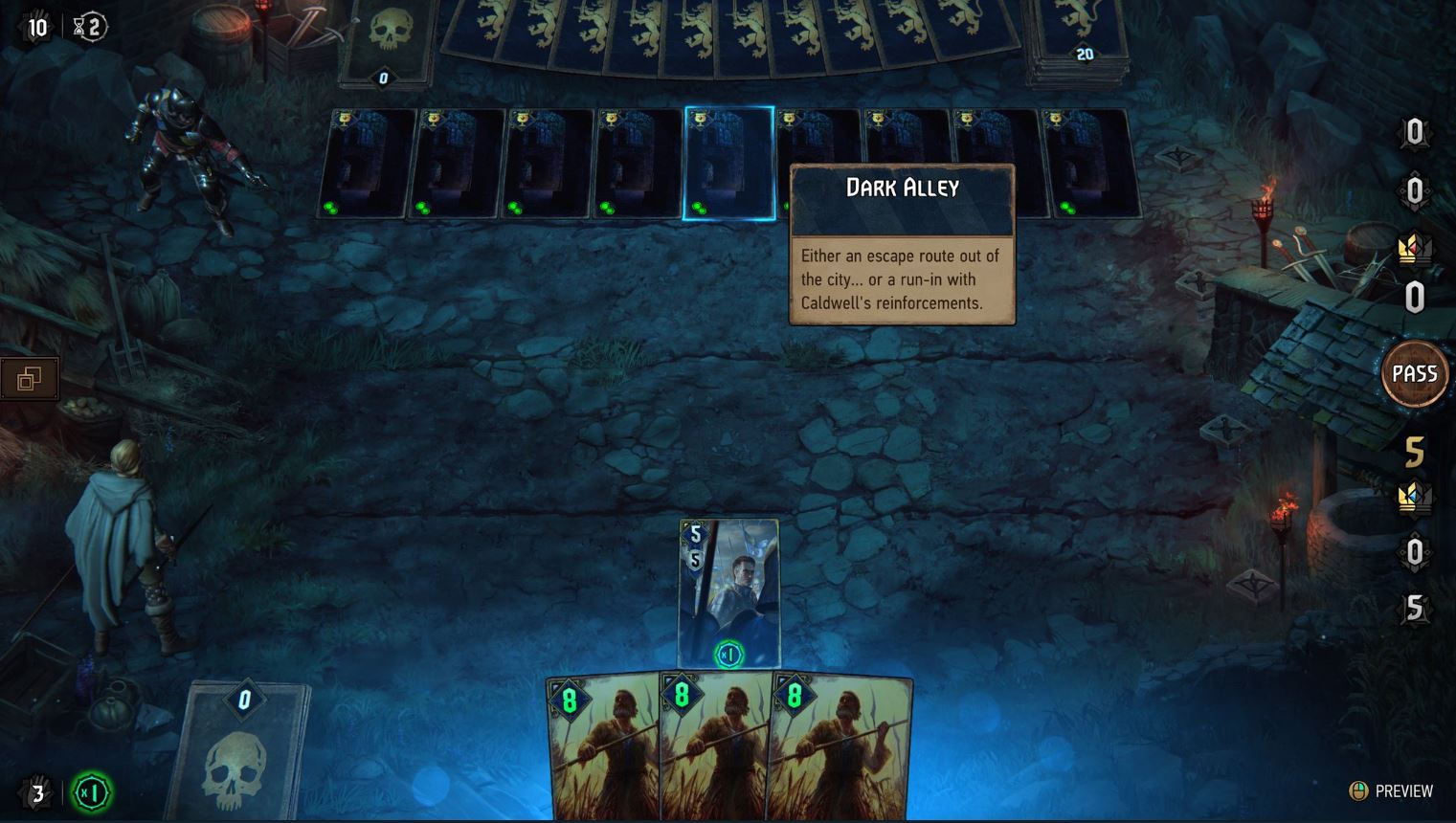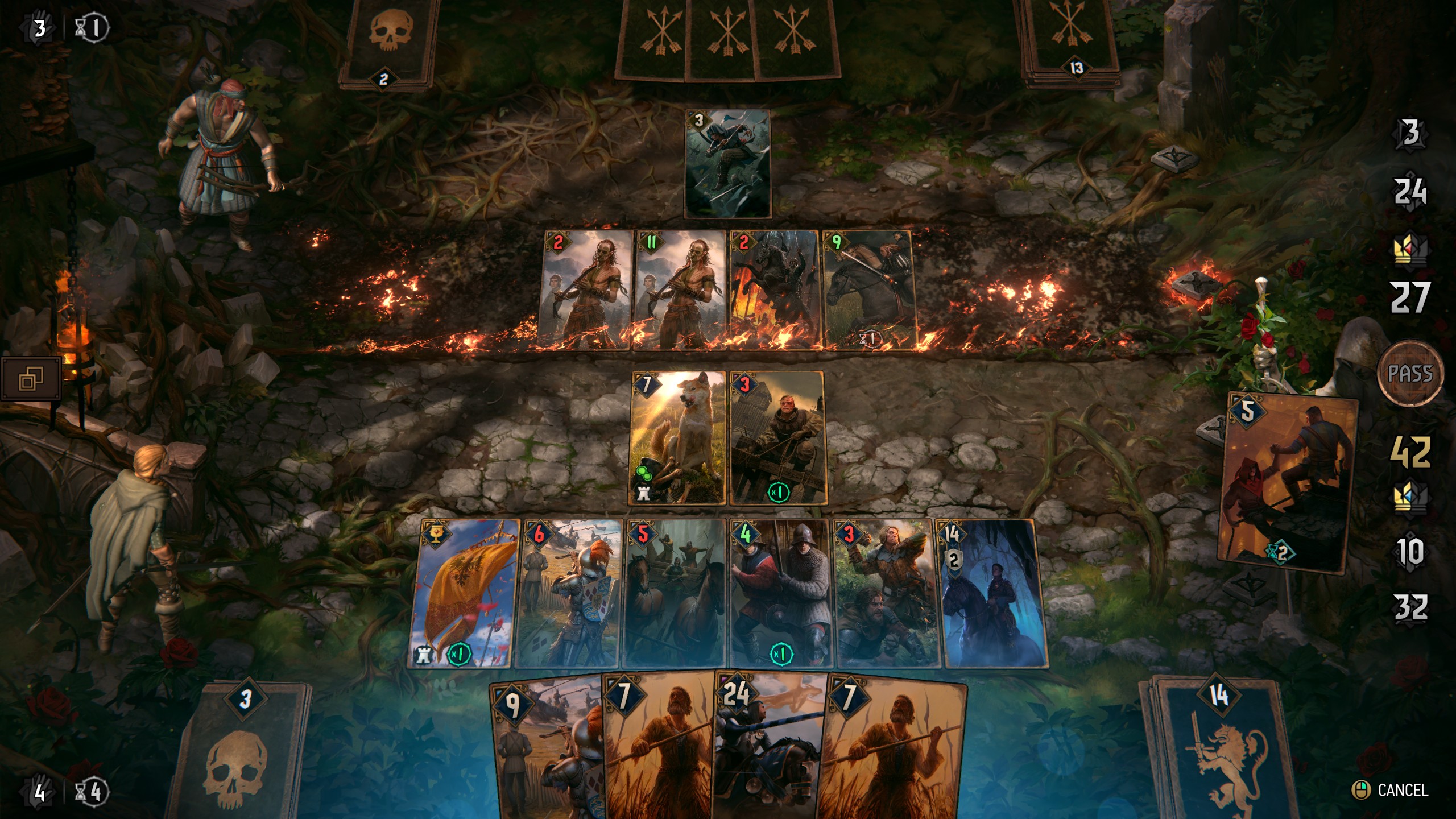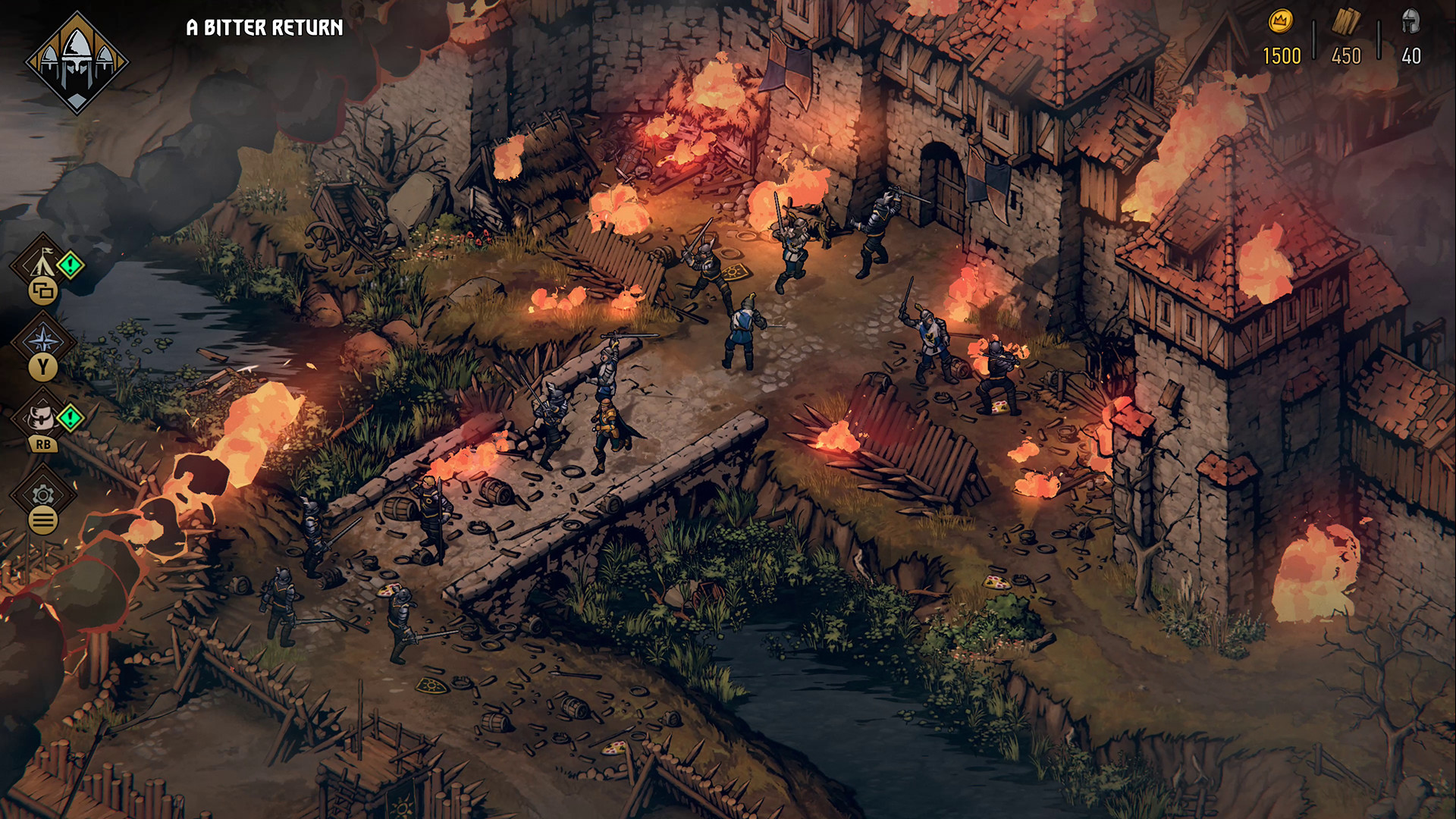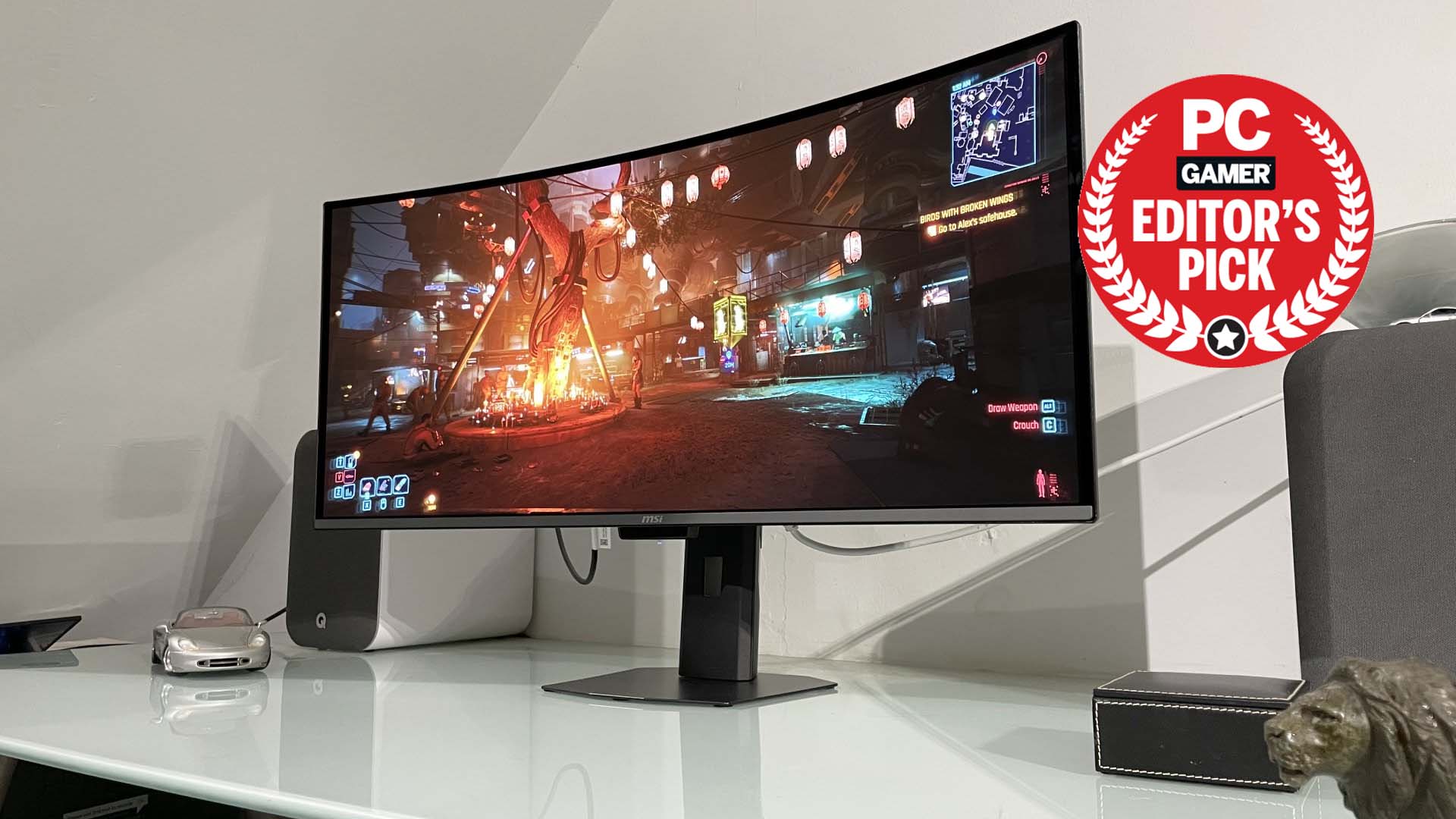How Thronebreaker got a card-hater to stop worrying and embrace the tactics rectangle
All it took was hiding a card game in a great RPG.
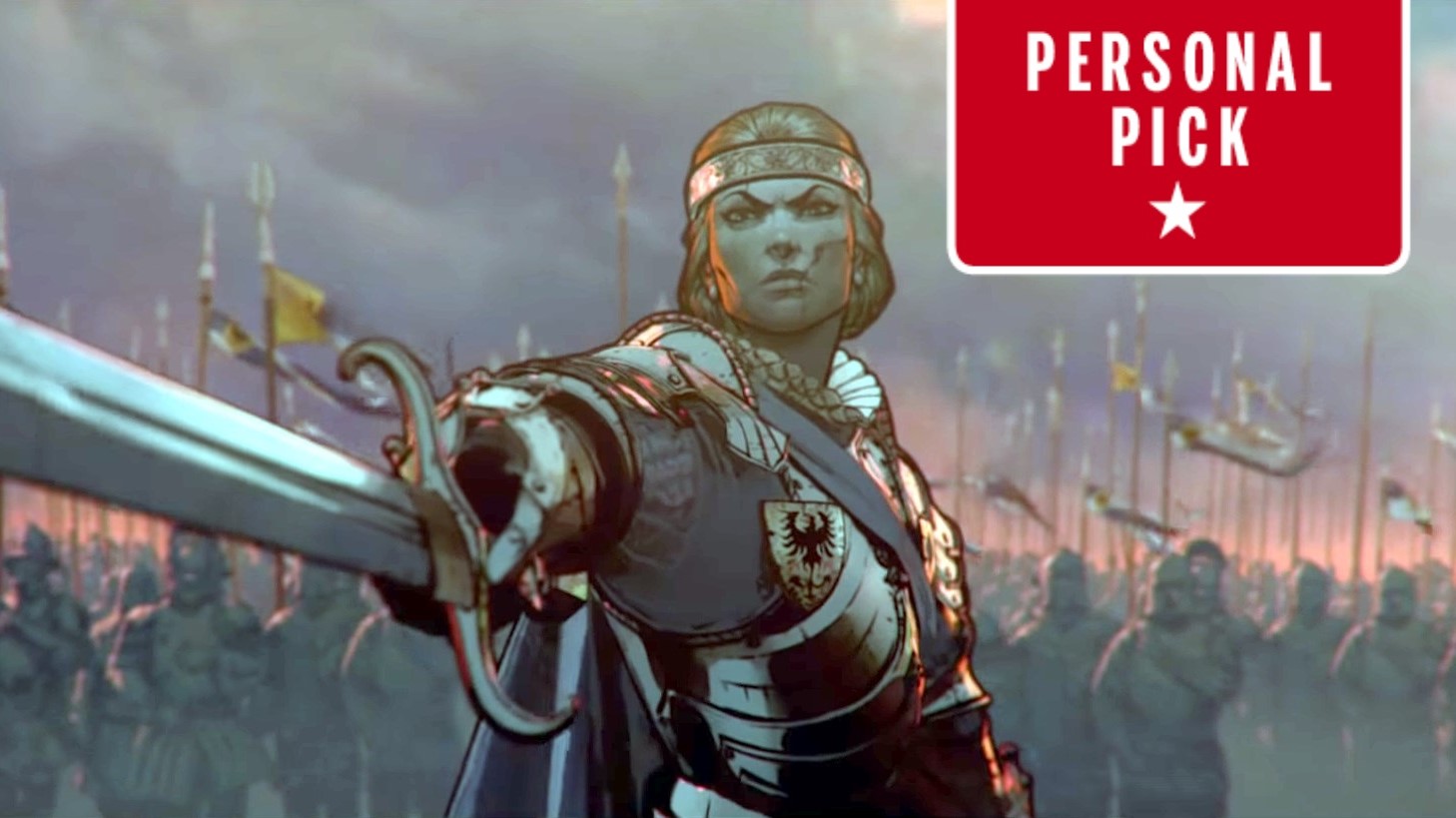
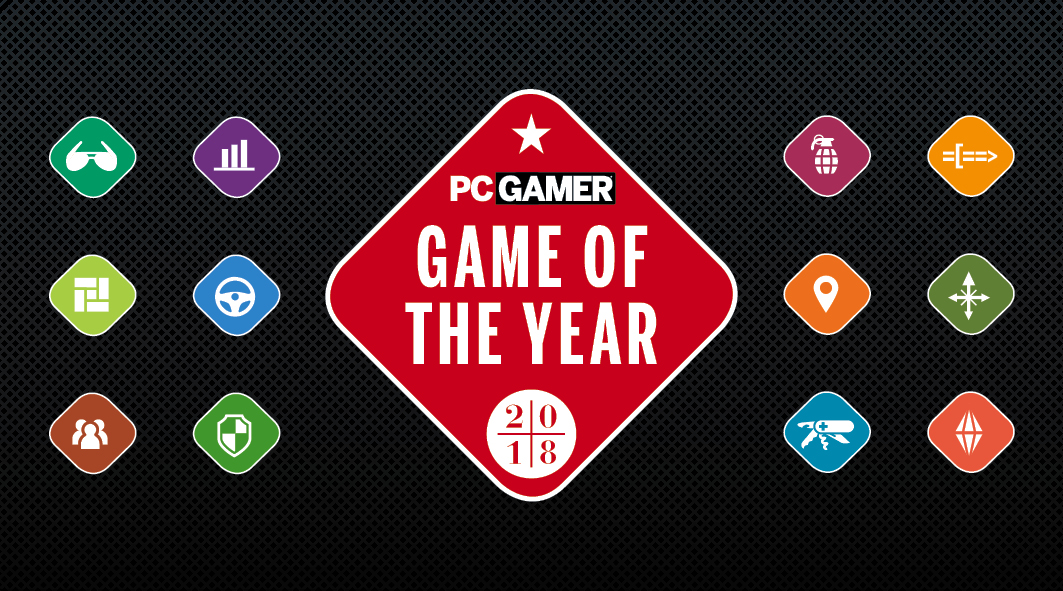
Accompanying our team-selected Game of the Year awards for 2018, individual members of the PC Gamer team each discussed one of their favorite games from 2018.
I've never been big on digital collectible card games. I don't build expensive PCs to have psychic showdowns with a secret legion of mind-warriors while they bus home. Between payment schemes that require frequent spending on card packs and endless expansions, there's no way of keeping up financially. And with how often those expansions reset the most effective playstyles, there's no way for a soft brain like mine to decode the most efficient playstyles before the next groin-kick to the meta.
But I'd like to, because I'm into how card games distill game systems into their most basic parts: a series of rectangles that affect one another and explicitly state how in written form. CCGs are combative flowcharts with rad art, and you can play them with one hand, the other arm limp and bloodless nesting in a bag of ice.
Proof of my past relationship with card games, courtesy @TheScarfington.
Finally, a card game for the haters. Thronebreaker: The Witcher Tales is the ultimate digital card game indulgence: there's a set price, it's a self-contained work that explores how cards can do more than express one-on-one violence (though there's plenty of that too), and it's a gorgeous assembly of color and sound that manages to tell a great story in one of the best fantasy worlds I know. A card game.
Shuffling expectations
Thronebreaker uses Gwent, a card game normally about amassing and maintaining a greater armed force than your enemy, to express a daring nighttime escape from imprisonment. Cards are dark alleyways, and flipping one over reveals a way out or an ambush. In another scenario, two rows of three cards to assemble a terrifying Manticore, a monster that's part lion and scorpion and bat and asshole.
While plenty of scenarios in Thronebreaker are your usual Gwent matches, these bespoke puzzle scenarios with unique rules and decks are its best asset, breaking up the action with charm and challenge, all while serving to tell a character story or move the larger narrative forward.
It's surprisingly seamless for how disparate a tabletop card game and a gritty, character-based RPG sound on paper (cardstock).
Keep up to date with the most important stories and the best deals, as picked by the PC Gamer team.
A sign that Thronebreaker is truly blessed: Deck-building doesn't take much time. You'll start each chapter out with a basic deck, and you'll only ever need to swap out a few cards, though you can start from scratch if you like. If a deck isn't working, you'll know pretty quickly and you'll probably know why. Cards are handed out at a pace that gives you time to say Hey, what's your deal? over a few rounds. Consider your time respected.
Skipping the troll VO is a crime. I'll arrest you.
For some of that time, you'll wander through little wartorn scenes that depict a day in the shit life of the world of the The Witcher. Most of the story is expressed through text scenes with a few dialogue choices, but there's VO to accompany just about all of it if you'd rather listen. I normally skip through VO as fast as I can read, but it's so well done that I kicked back and let it drip down me just to hear the performances.
In one such performance, I saved a woman kidnapped from her own wedding, slaughtering the brigands that stole her away depicted via cards in a deliberately lopsided battle only for her to tell me, weeping, that her main man was somewhere in the limb-heap I just made. I could've, should've left it alone. A card game.
In another, we saved a troll from Nilfgaardian harassment in a match where the troll card's role was to basically fuck everyone up, including me, while I protected him. Nice guy. Didn't mean to smack me around—he's just a bit clumsy. Gave me some soup (also a card). Skipping the troll VO is a crime. I'll arrest you. We could've let him die, but he just might come in handy later. Or not. After besting some Skellige raiders, I opted to let them live, so long as they helped me punch and/or stab a few Nilfgaardians. I'm not sure the chaos they left in their wake was worth it.
Dealing with it
When you're not doing the mental math required to take out a grave hag or paralyzed with the news of your most recent betrayal (say goodbye to that hero card), Thronebreaker vibrates with lovely sights and sound. You move a mini-Meve through a living oil painting, burning villages and haunted forests broken up by landscapes that'd look nice on any wall. The music features everything from soothing orchestral ambience to the closest The Witcher will ever get to metal. Go listen to the Manticore theme.
It's a story that revels in the wry misery that CD Projekt is so adept with.
Production quality rivals Hearthstone, but leaves out the insidious slot-machine vibes all Blizzard games give me. It's nice to play something that feels good, looks good, and sounds good for the sake of it.
I'm reading the Witcher books for the first time while playing, so it's been fascinating to see what Meve was up to during the second northern war. None of it's particularly vital information, but it does provide a fascinating context for Meve's role within it all. In the books, she's so far come off as an impudent ruler without much love for her kids, one of whom features heavily at the center of Thronebreaker's plot. And knowing what I know about Meve, I've been steering my decisions to be somewhat blunt and unforgiving to reflect that, though the plot does reveal some surprising dimension to her. There's room to play her as gallantly and honorable as you like, of course, but she isn't, and her best intentions often go awry. Meve's story isn't a happy one.
Rather, it's a story that revels in the wry misery that CD Projekt is so adept with: the dizzying delivery of tragedy and comedy all at once. This isn't a cute plot CD Projekt whipped up to prop up a couple dozen games of Gwent, either. It's a damn novella, a trojan horse with cards in it. But I don't feel deceived. That Thronebreaker got me playing and enjoying a card game is nothing short of miraculous. That it's a great RPG in an incredible world is just a hell of a nice bonus.
James is stuck in an endless loop, playing the Dark Souls games on repeat until Elden Ring and Silksong set him free. He's a truffle pig for indie horror and weird FPS games too, seeking out games that actively hurt to play. Otherwise he's wandering Austin, identifying mushrooms and doodling grackles.
